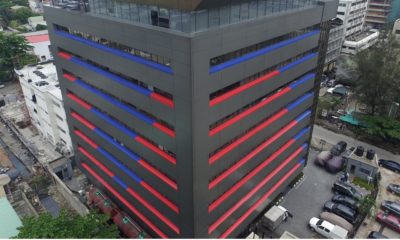- Insurance Sector Records 35.7% Premium Growth in 10 Years
The insurance sector has in the past ten years achieved an average growth rate of 35.07 per cent in both life and non-life classes of business.
A breakdown of this showed that life business recorded a higher growth rate of 27.64 per cent, while non-life grew by 7.43 per cent in the last 10 years.
Available statistics from the latest edition of the Nigeria Insurers Association’s annual digest showed that life business witnessed highest increase in premium of 85.8 per cent in 2008m, but recorded poor performance in 2016 when it recorded -0.50 per cent increase in premium generation.
However, in 2011, life business premium grew by 37.21 per cent followed by 2014, when premium from life business grew by 35.02 per cent. In 2012, premium from life business grew by 28.25 per cent while in 2017, it grew by 27.59 per cent.
For the non-life segment, the insurance sector witnessed highest increase in premium in 2008, when the sector’s premium grew by 22.1 per cent. This was followed by 2009, when the industry’s premium in non-life business grew by 19.6 per cent and was closely followed by 2011 and 2012 when it increased by 11.80 per cent and 11.63 per cent respectively.
Nevertheless, the sector recorded the worst performance in premium generation in 2015 and 2014 when growth stood at -3.50 per cent and -1.31 per cent respectively.
In motor insurance business segment, another class of non-life insurance business, the sector recorded a net written premium of N33.859 billion.
in 2017.
Among the underwriting firms that participated in this class of business in 2017, NEM Insurance earned the highest premium of N4.370 billion. NEM was closely followed by Axa Mansard Insurance which recorded N3.080 billion and Leadway Assurance – N3.071 billion.
The least premium earner in the motor insurance class of business for the period was the Nigerian Agricultural Insurance Corporation(NAIC) which earned N49.351 million premium.
In fire insurance class of business, the industry recorded the highest premium in 2017, when it garnered N35.375 billion followed by 2016 when it earned N30.773 billion premium and 2015 when it earned N27.36 billion premium.
The least premium in fire insurance business was earned by the sector in 2008, when the industry realised only N15.618 billion premium.
Speaking on the sector’s performance the Chairman, NIA, Mr. Tope Smart, said the sector’s performance during these period was negatively affected by the economic recession experienced in 2016.
He, however, said despite the downturn in economic activities, operators continued to improve their drive and commitment for premium increase.
The immediate past Chairman, NIA and Managing Director Consolidated Hallmark Insurance Mr Eddie Efekoha, said the total quantum of businesses written by insurance companies grew from N315.96 billion in 2016, to an estimated N363 billion in 2017.
He said in 2017, insurance firms had to grapple with challenges of epileptic power supply and dilapidated infrastructure such as roads and other public facilities, all which according to him, exposed the industry to increased cost of operations.
“This coupled with a suffocating tax regime impacted the bottom line of insurance companies,” Efekoha said.
According to him, despite the challenges, the insurance industry, during the period under review continued to perform its role of financial intermediation and business restoration in line with its mandate.
“The volume of business written by the market grew from N315.96 billion in 2016, to an estimated N363 billion in 2017, representing an expected increase of 15 percent over 2016 figure,” he said.
Efekoha, said to ensure a more robust performance in the current business year, the industry operators in collaboration with the National Insurance commission (NAICOM) embarked on various initiatives to deepen insurance penetration.


 Forex2 weeks ago
Forex2 weeks ago


 Naira2 weeks ago
Naira2 weeks ago
 Billionaire Watch1 week ago
Billionaire Watch1 week ago




 Naira2 weeks ago
Naira2 weeks ago




 Naira1 week ago
Naira1 week ago




 Naira4 weeks ago
Naira4 weeks ago
 Nigerian Exchange Limited4 weeks ago
Nigerian Exchange Limited4 weeks ago


 Naira3 days ago
Naira3 days ago















